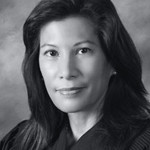A California Supreme Court ethics committee is seeking comments on a draft opinion that would allow state judges to hear cases of lawyers whose firms have donated to the judge’s campaigns, just so long as no single attorney trying that specific case has given more than $1,500. Judges would have to disclose the contribution, but could still hear the case.
The Metropolitan News is reporting details that “… the issue involves the interpretation of Code of Civil Procedure Sec. 170.1(a)(9)(a), which mandates judicial disqualification when a “lawyer in the proceeding” has donated more than $1,500 to the judge’s campaign. The draft opinion would clarify that the statute does not apply to contributions by a firm, and does not provide for aggregation of smaller contributions by individual lawyer.”
The deadline for comment on either opinion is Nov. 15, and comments may be submitted at the site, or by email, or by regular mail. The draft opinions and invitation to comment are posted on the committee’s website here. The full MetNews story is here.
